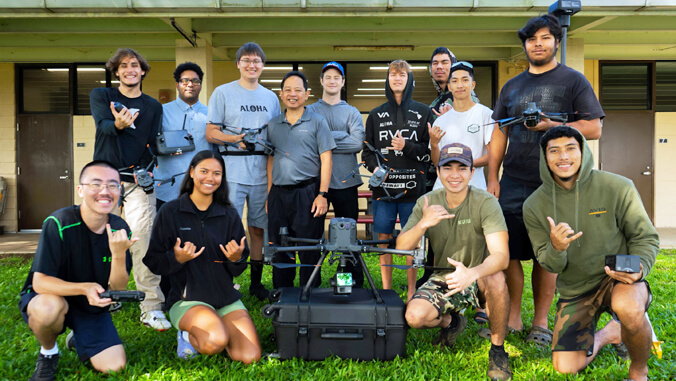Spring registration for the first drone certification program in the state’s community college system is now open at Hawaiʻi Community College. The program, backed by a $650,000 National Science Foundation grant, emphasizes practical applications of drone technology across industries, including agriculture, civil defense and environmental conservation.
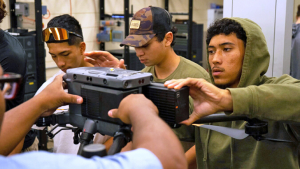
Debuting with a test cohort in fall 2023, the program quickly gained traction, equipping students with a comprehensive introduction to drone operations, including preparation for the FAA Part 107 certification required to become a licensed commercial drone pilot, and combining classroom learning with hands-on lab experiences.
Students practiced flying both racing drones and advanced commercial models. In fall 2024, the introductory course ENGT 107 reached capacity almost immediately.
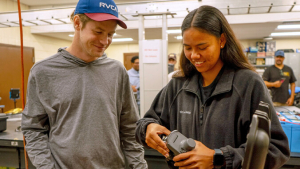
“Students are fascinated by how drones revolutionize traditional methods of observation,” said Paul Agamata, program administrator and instructor. “Tasks that once took days on foot, such as surveying 50-acre fields, can now be accomplished in just 30 minutes with drones. The accuracy is astounding—down to 2 centimeters or better.”
Addressing real-world challenges
The program’s interdisciplinary approach ensures students can apply drone technology across multiple sectors, addressing real-world challenges on Hawaiʻi Island and beyond.
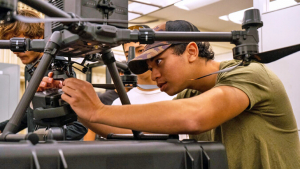
After ENGT 107, there are three courses needed to complete the certificate. Graduates of the program will be prepared for careers in a variety of fields, including construction surveying, public safety, environmental management, agriculture, and media production. The program also emphasizes data analysis.
“Learning to fly is the easy part,” Agamata said. “The challenge lies in collecting and interpreting data—skills we teach so students can use drones effectively in their industries.”
Community partners
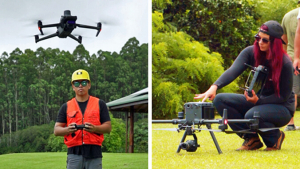
The program has also attracted interest from community partners such as Hawaiʻi County Civil Defense, the U.S. Department of Agriculture, and the Hawaiʻi Department of Land and Natural Resources. These partnerships provide students with opportunities to apply their skills in real-world scenarios, from disaster response to agroforestry management.
“Having knowledgeable, licensed drone pilots who can help make observations and collect data during emergency situations lessens the human risk,” said Talmadge Magno, Hawaiʻi County civil defense administrator. “This technology gives us many advantages.”
Visit hawaii.hawaii.edu for more information about ENGT 107 and take the first step toward becoming a certified drone pilot. For more information, contact Agamata at (808) 934-2686.
